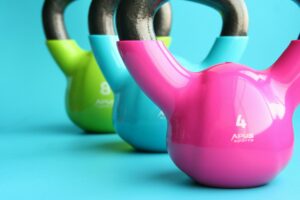Isn’t that what we all want? To feel active, energetic, lively, spirited and alert? We want to be our best for our kids, jobs, athletic endeavors, and have the energy to do all that we dream of. We have all the best intentions to attack our To-Do list and spread positive energy but inevitably, it hits us. We feel drained, uninspired, sleepy, dull, slow, fatigued, and maybe even depressed. We feel sluggish.
Is it just a predicament for women that we will feel sluggish? We take on so many tasks at home, at work, at our children’s school, volunteering on top of our already busy schedules, trying to fit exercise into our day, trying to make healthy meals, taking care of everyone around us. Of course, we feel fatigued.
What can we do to avoid feeling sluggish?
There are ways to keep our energy levels up. There are ways to treat feeling sluggish. If we take care of the following key areas of our life, we can feel invigorated, energetic, and excited for life!
How to Keep our Energy Up!
- Get enough SLEEP
- Get your energy from FOOD
- Reduce STRESS
- Keep your body MOVING
- Stay HYDRATED
SLEEP and ENERGY
Studies have shown that when we are deprived of sleep (less than 7-8 hours), we are slow to think, slow to react, and less alert (Alhola &Poo0-Kantola, 2011). The stress hormone, Cortisol, is also elevated with sleep deprivation. Chronically elevated cortisol can lead to increased appetite, weight gain, and diabetes. Lacking energy and gaining weight?! 7-8 hours of sleep needs to be scheduled into our daily routines.
- Plan your bedtimes to ensure 7-8 hours of sleep
- Have a bedtime routine that prepares your brain for sleep
- Turn off all electronic devices and keep the room dark
- Don’t use sleep aids to fall asleep
- Make adequate sleep a priority
FOOD and ENERGY
Food IS energy. The only way our body receives energy and stores energy is through FOOD. Without sufficient calories from food, our body will not function at its optimal levels. Without the proper nutrients we may be creating a cycle of highs and lows with the types of foods we eat.
- Lack of calories leaves our body in a deficit, forced to conserve energy by slowing everything down. We will feel slow and sluggish because our body cannot afford to expend any excess energy as we deprive our bodies of food. Skipping meals or restricting calories too dramatically leaves our body without the source of energy it needs to keep your body functioning at its best.
- When we eat foods such as simple sugars that are quick to digest, we get a rapid influx of glucose into our blood stream. This gives us that momentary high we feel after drinking a soda, or grabbing that cookie, donut or candy. But what comes next? That energy draining low after the high. This is caused by the insulin spike that results to combat our elevated blood glucose. The problem is that insulin overshoots its release and too much glucose is removed from the blood. Now, we are low on blood glucose and your body is screaming for more sugar! You are feeling sluggish, low on energy, maybe shaky and lightheaded so you again reach for the quick fix and the cycle continues. The quick fix is just that, quick. It does not provide long lasting energy.
- Providing your body with nutrients that digest slowly and provide a slow, steady stream of glucose into the bloodstream will give us a steady stream of energy with no highs and no lows. A steady flow of energy all day. How do we do this? Eat smaller meals more often. You’ve heard that so many times. This is why. Eat smaller meals and eat them before your blood sugar dips. Prevent the low, or dip in energy. Include protein, fiber, and healthy fats in your meals and snacks. These are slower to digest and will slow the release of glucose. Result à More energy throughout the day!
- Eat your Carbohydrates! Carbohydrates are your body’s preferred source of fuel. Carbohydrates breakdown to glucose. Your brain loves glucose and your muscles love glucose. Pair your carbohydrates with protein, good fats, or fiber and choose complex carbohydrates like veggies, fruits, whole grains, and beans. Carbs are good! Just make sure you choose the good carbs. Stay away from Simple Carbohydrates like sodas, candy, pastries, cookies, white breads, white rice, white pasta or basically anything without fiber.
STRESS and ENERGY
Stress is an interesting concept. Stress is the response of our body to a stressor. In the animal kingdom, the stressor might be a lion chasing down a zebra for dinner. The stress response of the zebra is a rush of adrenaline that heightens all the physiological systems. The zebra’s heart rate increases, it’s breathing rate increases, the motor nervous system recruits more muscles to run faster, its senses are heightened, reaction times are faster, fuel sources are mobilized for energy. If the Fight or Flight system does its job, the zebra can run fast enough to safety.
In our everyday life, we battle the stress response in the face of more psychological stressors. We are not running for our lives literally, but we are running into the face of stress all the time. What’s worse is that we are under Chronic Stress. The Zebra’s stress is an acute stress. After she flees to safety, her systems slow back down again. With us, we are stressed when we wake up in the morning with our list of things to do that day. We are stressed while dropping the kids off to school and trying to make it to work on time. We are stressed with pressures placed on us at work, or pressures we place on ourselves to be a better mom, wife, daughter, friend, athlete, or Pinterest guru. We are under constant stress that never lets up. Our body is in a constant state of heightened physiology. That means our heart rate is always elevated, our blood pressure rises, our breathing rate is faster, our fuel sources are being used, our appetite hormone, Grehlin, is elevated telling us to eat more food. With all of this constant wear and tear on our body, we begin to develop plaque deposits in our arteries. Our body starts to store more body fat around our abdomen. Carrying extra weight requires more energy and increases the strain on our heart. The hippocampus, the memory and learning center of our brain, begins to shrink! No wonder we feel slow and sluggish!
Adding to that already shocking list, Stress interrupts the pleasure circuit in our brain. A brain under chronic stress has less dopamine. Dopamine is the neurotransmitter in our brain associated with feeling pleasure. With less dopamine, everything around you is less pleasurable. The sun doesn’t shine as bright, food doesn’t taste as good, and we feel that sense of malaise. We are just not feeling “motivated” or excited about life.
The funny thing about Stress is that the Stressor is PERCEIVED. We perceive our job to be stressful. We perceive mothering to be stressful. We perceive traffic to be stressful. It is psychological, not a physical threat to our lives. We can observe lots of other women in our same situations that are smiling and calm and joyful. How are they doing that? They have a different perception! It’s not that they don’t have the same demands. It is likely that they put a conscious effort into finding more joy in a situation, changing the perception. If we can change our mindset and our perceptions, we can reduce a lot of stress in our lives! Therefore, we CHANGE OUR ENERGY!
EXERCISE and ENERGY
Exercise is the quick fix for energy! Exercise releases adrenalin, or endorphins, to give us that natural high, or natural boost of energy. Even a simple 15-minute walk can boost our energy. Feeling that mid-afternoon slump? Get up and get moving! Exercise gets the blood pumping throughout your body, delivering oxygen and energy to your muscles and brain. Your heart rate rises, your senses become more acute, and endorphins are flooding your body. Just like that zebra running, you feel alive!
- Instead of reaching for that mid-afternoon candy bar or sugar rush, get up and get moving. Your favorite type of movement works. Do some Yoga poses in your office, go up and down a flight of stairs, walk around the block, dance to your favorite songs. Set a timer for 15 minutes and get moving!
- You will get a greater energy boost and mood booster if you take it outside! Both exercise and sunlight (Vitamin D) boost Serotonin, the feel-good neurotransmitter in your brain. Boost energy and get some HAPPY by exercising outdoors!
HYDRATION and ENERGY
Our bodies are made up of mostly water. Even a small amount of dehydration can cause fatigue and impair our physical performance. Workouts and even chores become harder. A decrease of water in our body decreases the blood volume. Blood becomes thicker and lessens the return of blood to our heart. The heart is a muscle that requires a constant supply of oxygen and blood flow or its performance will also decrease. That means less blood pumping to your muscles and less blood pumping to your brain. The effect is we feel weak and fatigued.
- How do I know if I’m dehydrated? Check the color of your urine. Dark urine with a strong smell is a sign of dehydration.
- Look for a pale yellow color to indicate adequate hydration.
What can I do when I feel sluggish?
- Eat some protein and complex carbohydrates
- Drink water
- Move your body, do yoga!
- Get outside
- Change your mindset. Perceive things with more positivity!
XOXO,
Coach Heather, Kaia FIT Santa Clarita
REFERENCES
Alhola, P., & Polo-Kantola, P. (2007). Sleep deprivation: Impact on cognitive performance.
Neuropsychiatric Disease and Treatment, 3(5), 553-567.
https://www.ncbi.nlm.nih.gov/pmc/articles/PMC2656292/
McEwen, B.S. (2008). Central effects of stress hormones in health and disease:
understanding the protective and damaging effects of stress and stress mediators.
European Journal of Pharmacology, 583 (2-3), 174-185.
https://www.ncbi.nlm.nih.gov/pmc/articles/PMC2474765/
Woodyard, C. (2011). Exploring the therapeutic effects of yoga and its ability to increase
quality of life. International Journal of Yoga, 4(20), 49-54.




